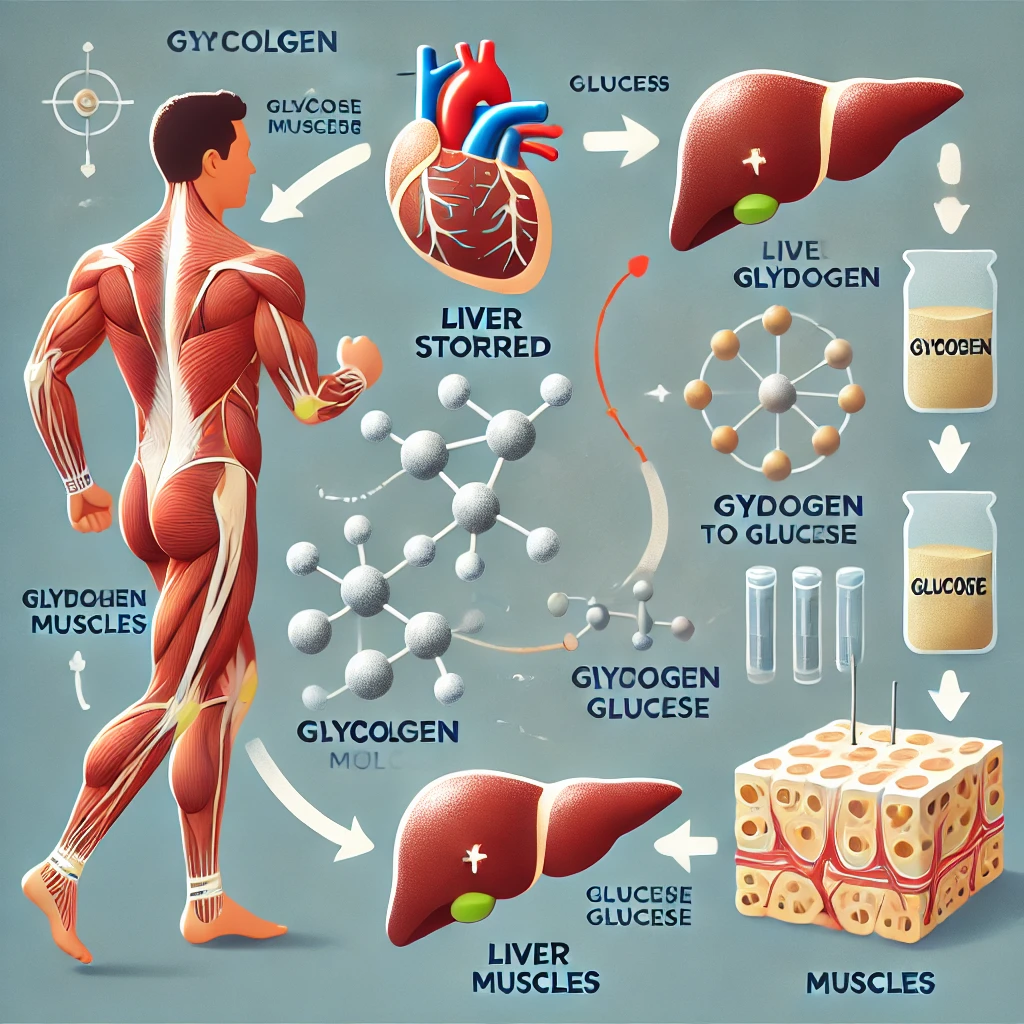When it comes to weight loss and fitness, understanding how your body regulates energy is key. One of the hormones that plays a vital role in energy management is epinephrine (also known as adrenaline). Known for its role in the “fight or flight” response, epinephrine also has a significant impact on how your body stores and breaks down energy, particularly through a process called glycogenolysis — the breakdown of glycogen into glucose for energy. But how does this process relate to weight control? Let’s dive in.

The Role of Glycogen in Energy Storage
Glycogen is a form of stored glucose that your body keeps in muscles and the liver. When you eat carbohydrates, your body converts the glucose from carbs into glycogen. This stored glycogen serves as a quick source of energy during exercise or when you’re fasting, like overnight while you sleep.
Now, this is where epinephrine comes into play. When you exercise, fast, or face stress, epinephrine is released, signaling your muscles to break down glycogen into glucose. This provides the necessary fuel to power your workout or other physical activities.

Epinephrine’s Effect on Weight Control
So, how does epinephrine impact weight control?
Stimulates Glycogen Breakdown (Glycogenolysis)
Epinephrine activates glycogenolysis, particularly in muscles that have normal or high glycogen content. This means that when you’re well-fed or have consumed carbs, epinephrine signals your body to use that stored glycogen for energy. In essence, it helps your body tap into its energy reserves to fuel your activities, preventing excess glycogen from being stored as fat.
Low Glycogen Content Encourages Fat Burning
When glycogen levels are low, such as after a period of fasting or extended exercise, epinephrine doesn’t trigger much glycogen breakdown. Instead, your body shifts to using fat stores for energy. This is great news for anyone aiming to lose weight, as burning fat is a key component of reducing body fat percentage. Essentially, low glycogen levels make your body more efficient at using fat as fuel.
Regulates Glycogen Synthase Activity
Glycogen synthase is the enzyme that helps build glycogen stores from glucose. Epinephrine decreases glycogen synthase activity when glycogen levels are high, ensuring that your body doesn’t store too much energy as glycogen, which could later be converted to fat. As glycogen levels drop, glycogen synthase becomes more active, helping your body replenish its glycogen stores only when necessary.
Enhances Insulin Sensitivity
After glycogen is broken down by epinephrine, muscles become more sensitive to insulin. This is important for weight control because improved insulin sensitivity means your body can better manage glucose levels, store energy effectively, and prevent excess fat accumulation.
What Does This Mean for Weight Loss?
Epinephrine plays a dual role in weight control — it helps your body use glycogen when needed and ensures that when glycogen levels are low, fat becomes the primary fuel source. By understanding how your body responds to different levels of glycogen, you can optimize your workouts and diet for better fat-burning potential.
Practical Tips
- Exercise in a fasted state: When glycogen levels are low, your body shifts to burning fat for energy, making fasted exercise a great tool for weight loss.
- Use high-intensity interval training (HIIT): HIIT workouts trigger the release of epinephrine, accelerating glycogen breakdown and fat utilization.
- Manage your carb intake: You don’t need to eliminate carbs completely, but strategically timing your carbohydrate intake can help balance glycogen levels and fat-burning efficiency.
Conclusion
Epinephrine doesn’t just give you a burst of energy in stressful situations — it plays a crucial role in how your body manages its energy reserves. By understanding how it affects glycogen and fat usage, you can make more informed decisions about your workouts and nutrition to better control your weight.
